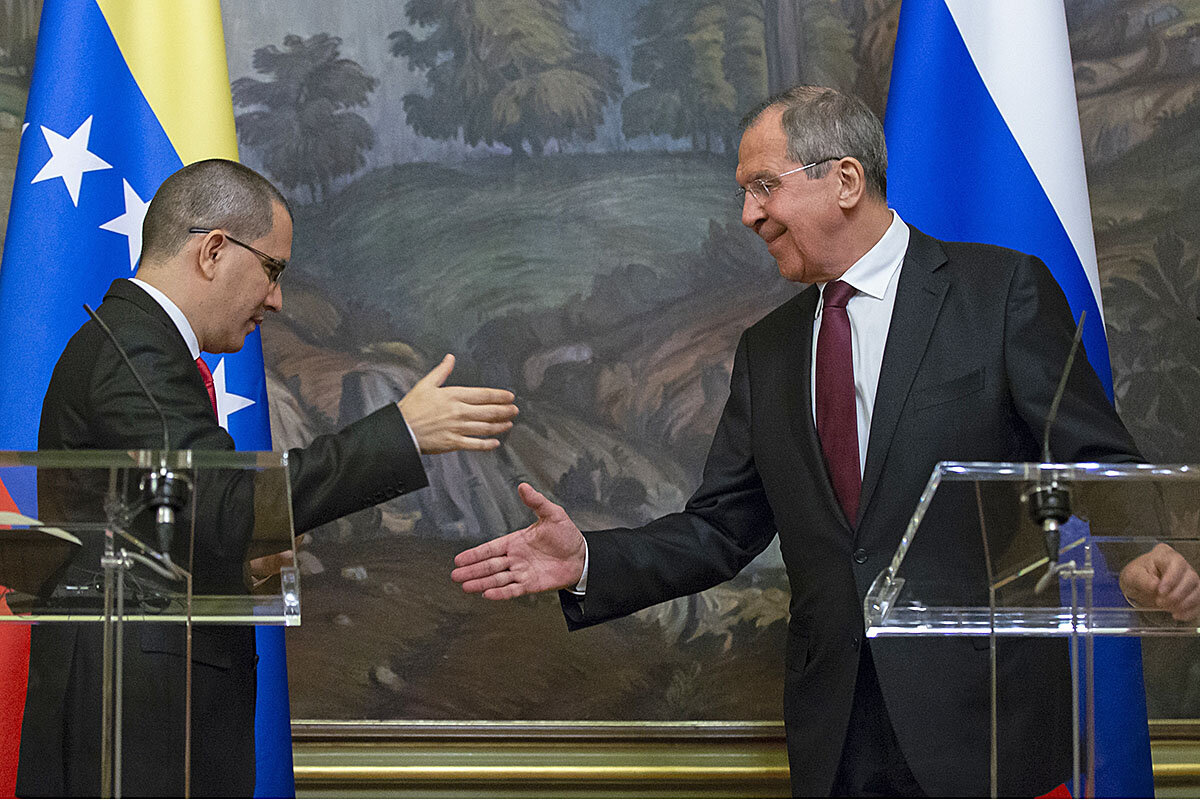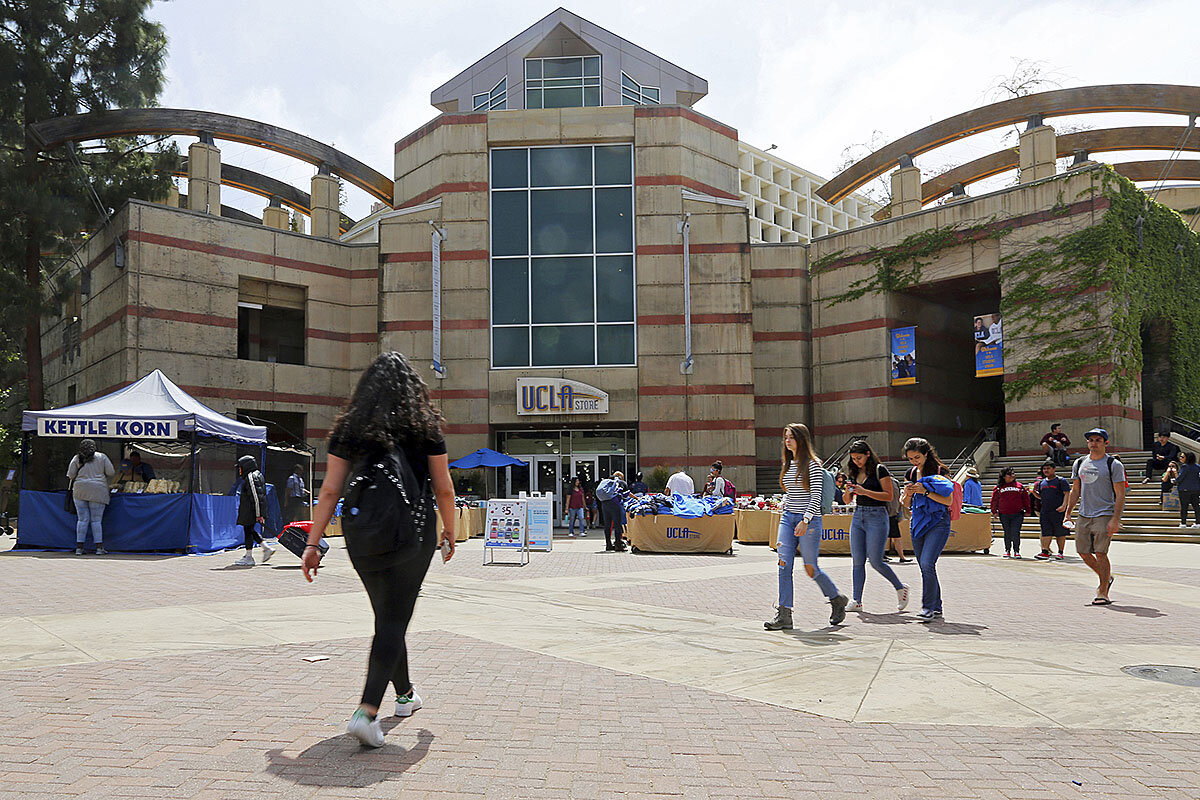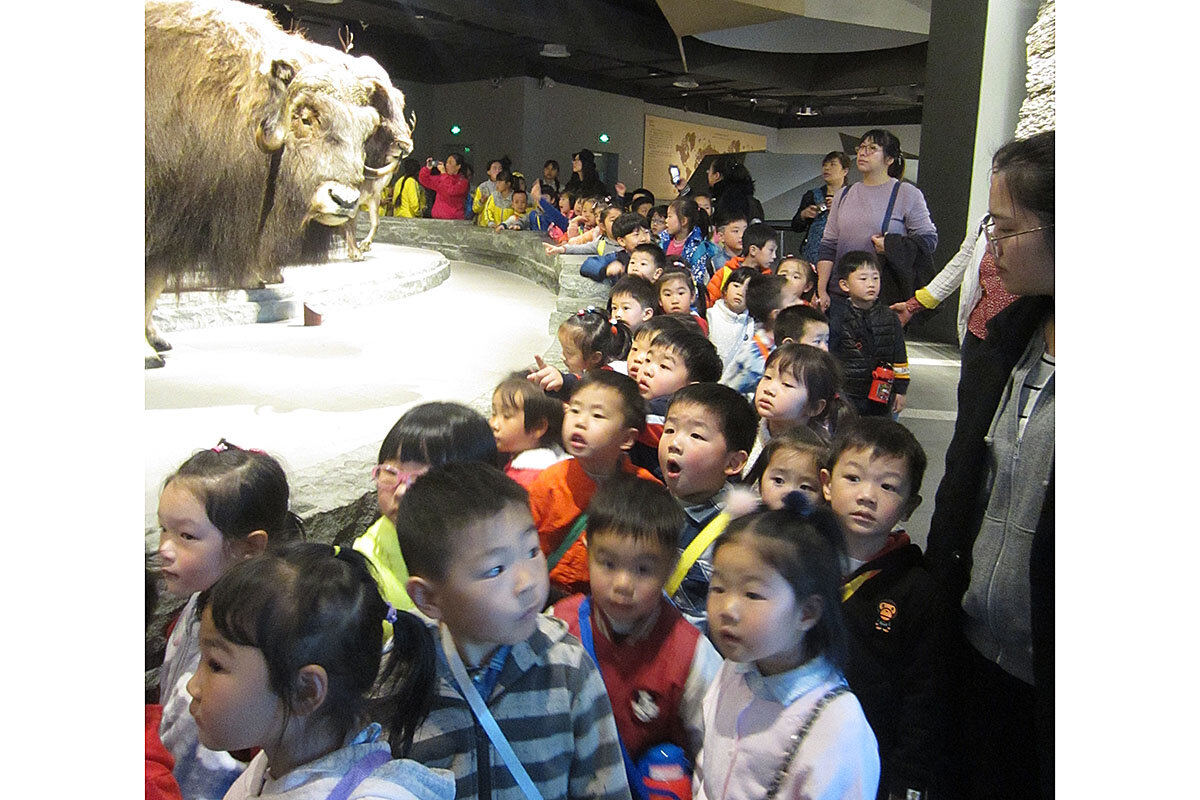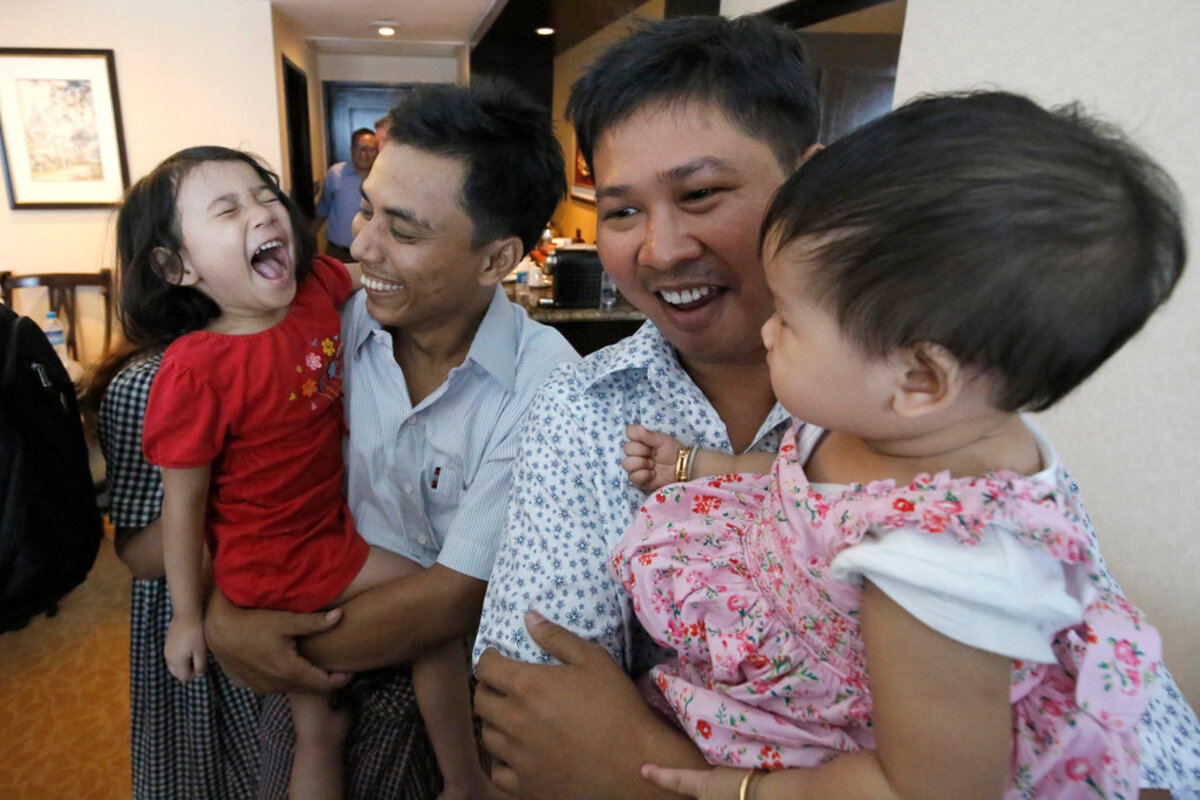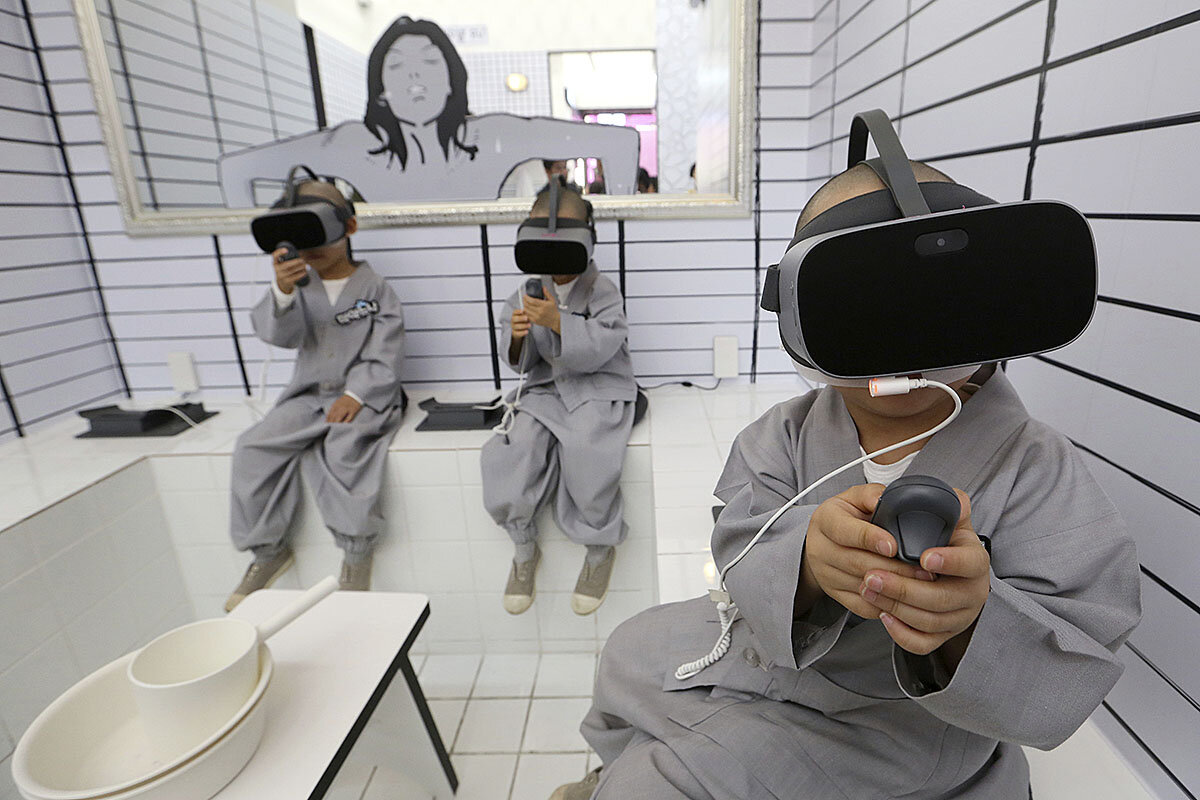Civilian control over the military is essential in democracy, but what happens when the military’s stability plan is ignored by politicians? Our reporter says the Israeli military’s frustration over the Gaza conflict is coming to the surface.
Monitor Daily Podcast
- Follow us:
- Apple Podcasts
- Spotify
- RSS Feed
- Download
 David Clark Scott
David Clark Scott
At 46%, President Donald Trump now has his highest job-approval rating since taking office.
The latest Gallup poll shows the biggest boost comes from Democrats and independents. That’s a significant shift. Republican support has not changed.
What happened? Fear of a recession has ebbed. Hope has rebounded with a strong economy. On Friday, we learned that in the first quarter of this year, the gross domestic product grew at 3.2%, a more robust rate than expected. The U.S. unemployment rate also dropped to 3.6%, the lowest in 50 years.
But U.S. stock markets nose-dived Tuesday, surprised by Mr. Trump’s plans to raise tariffs Friday on $200 billion worth of products made in China. The president’s abrupt shift may reflected confidence that a strong economy gives the U.S. more leverage. China’s trade negotiators are scheduled to arrive in Washington Thursday.
If the economy remains strong, history suggests that bodes well for Mr. Trump’s 2020 reelection. And we aren’t likely to see Democratic candidates focusing on the economy as much as inequality – the widening gap between the wealthy and the middle class. If the president promises continued economic progress, expect Democrats to promise justice and fairness.
Mr. Trump’s job-approval ratings are still lower than those of any other president in recent history. But as acting White House Chief of Staff Mick Mulvaney said recently, “People will vote for somebody they don’t like if they think it is good for them.”
Now to our five selected stories, including rebuilding trust after the U.S. measles outbreak, the shifting roles of women in Jordan, and how China’s dinosaur finds might spur the next generation of paleontologists.





